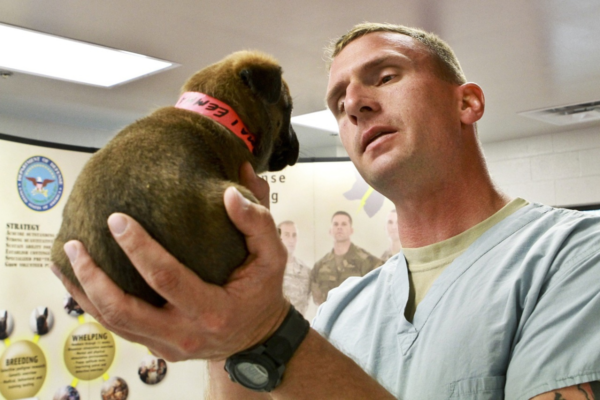On June 27th, we observe Post-Traumatic Stress Disorder (PTSD) Awareness Day, a time dedicated to acknowledging the profound impact of trauma on individuals’ mental health, and promoting understanding and support for those affected. While PTSD is often associated with military personnel, first responders, and survivors of violence or accidents, it is crucial to recognize that veterinary team members also experience significant psychological strain that can lead to PTSD.

Veterinary medicine is a profession driven by compassion and dedication to animal welfare, yet it often places practitioners in ethically and emotionally challenging situations. As a veterinarian myself, the concept of moral distress was once foreign to me. Growing up in my mom’s companion animal practice and throughout my veterinary school education, I had never encountered discussions about the emotional toll of morally stressful situations. However, my journey in emergency and critical care medicine has starkly illuminated the psychological burdens we face, from euthanasia decisions to dealing with cases of futile care.
Moral distress in veterinary practice arises when veterinarians recognize the ethically correct action but feel powerless to follow through due to external constraints, such as client demands or financial limitations. For instance, the decision to euthanize a pet can be fraught with moral conflict. Consider the scenario where a pet owner insists on euthanasia despite viable treatment options, or conversely, refuses euthanasia when the animal is suffering and has no hope of recovery. These situations not only weigh heavily on veterinarians but also affect the entire veterinary team, leading to profound emotional distress.
One poignant example that stands out in my memory involves a Yorkshire Terrier admitted to our intensive care unit after experiencing complications from a tracheal stent surgery. Despite our best efforts and numerous interventions, the dog became dependent on mechanical ventilation with no chance of recovering to breathe independently. The moral stress escalated as the team grappled with the futility of continued care, resulting in anger, frustration, and sadness. This scenario exemplifies the profound impact of moral stress, which, if unresolved, can contribute to PTSD.

Moral injury is another critical issue, defined as a deep psychological response to witnessing or participating in events that violate one’s core moral principles. In veterinary medicine, moral injury can occur during situations like mass euthanasia in disaster scenarios or witnessing severe cases of animal abuse. A colleague of mine faced such a situation during catastrophic flooding in British Columbia, where he had to euthanize a significant portion of a client’s dairy cow herd. The emotional toll of such experiences can be immense and long-lasting, leading to symptoms akin to PTSD.
The prevalence of PTSD among veterinarians is increasingly recognized. A comprehensive study published in the European Journal of Psychotraumatology revealed that nearly 90% of surveyed veterinarians in the United Kingdom had experienced a potentially morally injurious event, significantly correlating with PTSD symptoms. Additionally, moral stress and injury contribute to a host of emotional responses, including guilt, shame, and reduced confidence, affecting the mental health and wellbeing of veterinary professionals.
Addressing these challenges requires a multifaceted approach. Veterinary education must integrate training on ethical dilemmas and coping mechanisms for moral stress. Practices can implement ethics rounds and discussion groups to provide a supportive environment for veterinary team members to process their experiences. Additionally, incorporating veterinary social workers into practice settings can offer crucial emotional support and resources.

As we observe PTSD Awareness Day, let us extend our empathy and support to veterinarians who navigate these morally and emotionally taxing situations daily. By acknowledging the unique challenges they face and promoting strategies to mitigate moral stress, we can foster a more compassionate and resilient veterinary profession.
